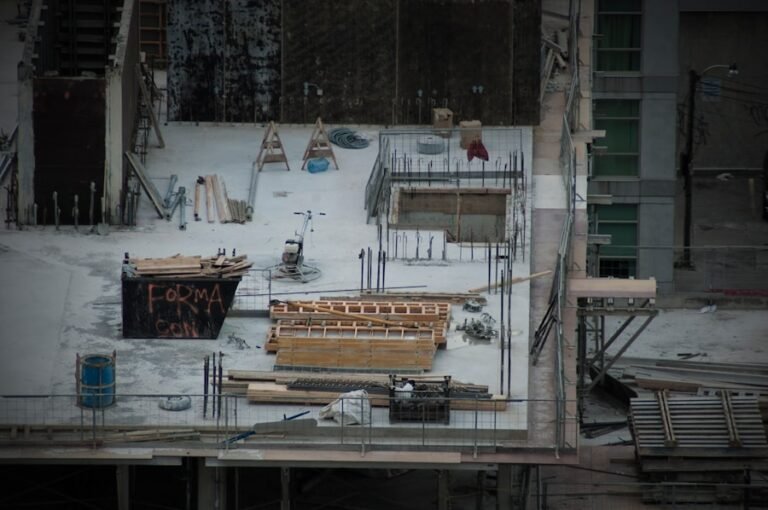When it comes to construction projects, it’s crucial to have a clear understanding of your needs before you start looking for suppliers. This means taking the time to assess the scope of your project, the specific materials and equipment you’ll need, and any special requirements or considerations that may come into play. For example, if you’re working on a large-scale commercial construction project, you’ll likely need a wide range of materials and equipment, including steel beams, concrete, and heavy machinery. On the other hand, if you’re working on a smaller residential project, your needs may be more focused on specific materials like lumber, roofing materials, and plumbing fixtures. By taking the time to thoroughly understand your construction needs, you’ll be better equipped to find the right suppliers who can meet those needs and provide the quality products and services you require.
In addition to understanding your specific construction needs, it’s also important to consider any unique challenges or constraints that may impact your project. This could include factors like budget limitations, tight timelines, or environmental considerations. By taking these factors into account from the outset, you can ensure that you find suppliers who are able to work within these parameters and provide the support and solutions you need to successfully complete your project. Ultimately, having a clear understanding of your construction needs will not only help you find the right suppliers, but it will also set the stage for a successful and efficient construction process.
Researching Potential Suppliers
Once you have a clear understanding of your construction needs, the next step is to start researching potential suppliers. This involves identifying and evaluating a range of suppliers who may be able to provide the materials and equipment you need for your project. There are a variety of ways to research potential suppliers, including online searches, industry directories, trade shows, and referrals from colleagues or industry contacts. As you begin your research, it’s important to consider factors like the supplier’s location, their product offerings, their reputation in the industry, and their experience working on projects similar to yours. By gathering this information, you can start to narrow down your list of potential suppliers and focus on those who are best positioned to meet your specific needs.
In addition to gathering information about potential suppliers, it’s also important to reach out and make contact with them directly. This could involve sending emails or making phone calls to inquire about their products and services, request quotes, or schedule meetings or site visits. By engaging directly with potential suppliers, you can gain a better understanding of their capabilities, their customer service approach, and their willingness to work with you to meet your specific needs. This direct interaction can also help you start to build relationships with potential suppliers, which can be valuable as you move forward in the supplier selection process. Ultimately, by thoroughly researching potential suppliers and engaging with them directly, you can gather the information and insights you need to make informed decisions about which suppliers are the best fit for your construction project.
Comparing Quality and Pricing
One of the key factors to consider when evaluating potential suppliers is the quality of their products and services, as well as their pricing. When it comes to construction materials and equipment, quality is paramount. You need to be confident that the products you’re using are durable, reliable, and able to meet the demands of your project. This means carefully evaluating the specifications and performance characteristics of the materials and equipment offered by potential suppliers, as well as any certifications or quality control measures they have in place. In addition to quality considerations, pricing is also a critical factor when comparing potential suppliers. Construction projects often operate within tight budgets, so it’s important to find suppliers who can offer competitive pricing without sacrificing quality. This involves not only comparing the initial cost of materials and equipment, but also considering factors like shipping costs, bulk discounts, and any additional fees or charges that may apply. By carefully comparing the quality and pricing offered by potential suppliers, you can make informed decisions about which suppliers are able to provide the best value for your construction project.
In addition to evaluating quality and pricing on an individual basis, it’s also important to consider how these factors align with your overall project goals and requirements. For example, if your project has strict performance specifications or durability requirements, you may be willing to pay a premium for higher-quality materials that can meet those standards. On the other hand, if your project has more flexibility in terms of material specifications, you may prioritize finding suppliers who can offer competitive pricing without compromising on quality. By aligning your quality and pricing considerations with your specific project needs, you can ensure that you find suppliers who are able to provide the right balance of quality and affordability for your construction project.
Checking Supplier Experience and Reputation
When evaluating potential suppliers for your construction project, it’s important to consider their experience and reputation in the industry. This involves looking at factors like how long the supplier has been in business, the types of projects they have worked on in the past, and any testimonials or references they can provide from previous clients. By gathering this information, you can gain insights into the supplier’s track record of success and their ability to deliver on their promises. In addition to experience considerations, it’s also important to assess the supplier’s reputation within the industry. This could involve researching online reviews and ratings, checking with industry organizations or trade associations, or seeking feedback from colleagues or industry contacts who have worked with the supplier in the past. By gathering this information, you can gain a better understanding of how the supplier is perceived by others in the industry and whether they have a positive track record of delivering quality products and services.
In addition to evaluating experience and reputation on a broad level, it’s also important to consider how these factors specifically relate to your project needs. For example, if you’re working on a complex or specialized construction project, you may prioritize finding suppliers who have a proven track record of success in similar projects. On the other hand, if your project has unique requirements or challenges, you may prioritize finding suppliers who have a reputation for being flexible and adaptable in meeting those needs. By aligning your evaluation of supplier experience and reputation with your specific project requirements, you can ensure that you find suppliers who are able to bring the right level of expertise and reliability to your construction project.
Assessing Supplier Reliability and Timeliness
In addition to evaluating experience and reputation, it’s also important to assess the reliability and timeliness of potential suppliers. This involves considering factors like their ability to consistently deliver products on time, their track record of meeting deadlines, and their responsiveness in addressing any issues or concerns that may arise during the course of a project. Reliability is crucial when it comes to construction projects, as delays or disruptions in the supply chain can have significant impacts on project timelines and budgets. By assessing the reliability of potential suppliers, you can gain confidence that they will be able to deliver on their promises and support the successful completion of your construction project.
In addition to reliability considerations, it’s also important to assess the timeliness of potential suppliers in terms of their responsiveness and communication throughout the supplier selection process. This could involve evaluating factors like how quickly they respond to inquiries or requests for information, how transparent they are in providing updates on order status or delivery timelines, and how proactive they are in addressing any issues or concerns that may arise. By assessing these factors, you can gain insights into how well potential suppliers are able to communicate and collaborate with you throughout the course of your construction project. Ultimately, by assessing supplier reliability and timeliness, you can ensure that you find suppliers who are able to provide the consistent support and communication needed for a successful construction project.
Negotiating Terms and Conditions
Once you have identified potential suppliers who meet your quality, pricing, experience, reputation, reliability, and timeliness criteria, the next step is to negotiate terms and conditions with them. This involves discussing factors like pricing agreements, delivery schedules, payment terms, warranties or guarantees on products or services provided, as well as any other specific requirements or considerations that may apply to your project. Negotiating terms and conditions with potential suppliers is an important step in ensuring that both parties are aligned on expectations and responsibilities throughout the course of a construction project.
When negotiating terms and conditions with potential suppliers, it’s important to approach these discussions with a collaborative mindset. This means being open to finding mutually beneficial solutions that address both parties’ needs and concerns. For example, if there are specific requirements or constraints that apply to your project (such as tight timelines or budget limitations), it’s important to communicate these openly with potential suppliers so that they can work with you to find solutions that meet those needs. By approaching negotiations in a collaborative manner, you can build stronger relationships with potential suppliers and set the stage for successful partnerships throughout the course of your construction project.
In addition to negotiating specific terms and conditions related to pricing and delivery schedules, it’s also important to consider broader factors like ongoing support and communication throughout the course of a project. This could involve discussing how potential suppliers will handle any issues or concerns that may arise during the course of a project, how they will communicate updates on order status or delivery timelines, as well as how they will provide ongoing support after products or services have been delivered. By addressing these broader considerations during negotiations with potential suppliers, you can ensure that both parties are aligned on expectations for ongoing collaboration and support throughout the course of a construction project.
Building a Long-Term Relationship with Suppliers
Finally, once terms and conditions have been negotiated with selected suppliers for your construction project, it’s important to focus on building long-term relationships with them. This involves fostering open communication channels with suppliers so that both parties can stay aligned on project progress and any issues or concerns that may arise along the way. By maintaining open lines of communication with suppliers throughout the course of a project, you can address any issues proactively and work together collaboratively to find solutions that meet both parties’ needs.
In addition to maintaining open communication channels with suppliers throughout a project, it’s also important to consider broader factors like ongoing collaboration opportunities beyond the scope of a single project. Building long-term relationships with suppliers involves looking for opportunities to work together on future projects or initiatives where both parties can continue to benefit from each other’s expertise and support. By fostering these ongoing collaboration opportunities with suppliers, you can build stronger relationships that extend beyond individual projects and create lasting partnerships that support ongoing success in construction projects.
Ultimately, by focusing on building long-term relationships with suppliers throughout the course of a construction project, you can create a foundation for ongoing collaboration and success that benefits both parties in the long run. By maintaining open communication channels throughout projects and looking for opportunities for ongoing collaboration beyond individual projects, you can build strong relationships with suppliers that support successful construction projects now and in the future.
In conclusion, finding the right suppliers for your construction projects involves thorough research into potential suppliers’ experience and reputation as well as assessing their reliability and timeliness in delivering products on time. Negotiating terms and conditions is an essential step in ensuring both parties are aligned on expectations throughout a project while building long-term relationships with selected suppliers fosters ongoing collaboration opportunities beyond individual projects for mutual benefit. With careful consideration of these factors at each stage of supplier selection process from understanding your construction needs through building long-term relationships with selected suppliers will ensure successful completion of construction projects now and in future endeavors.












